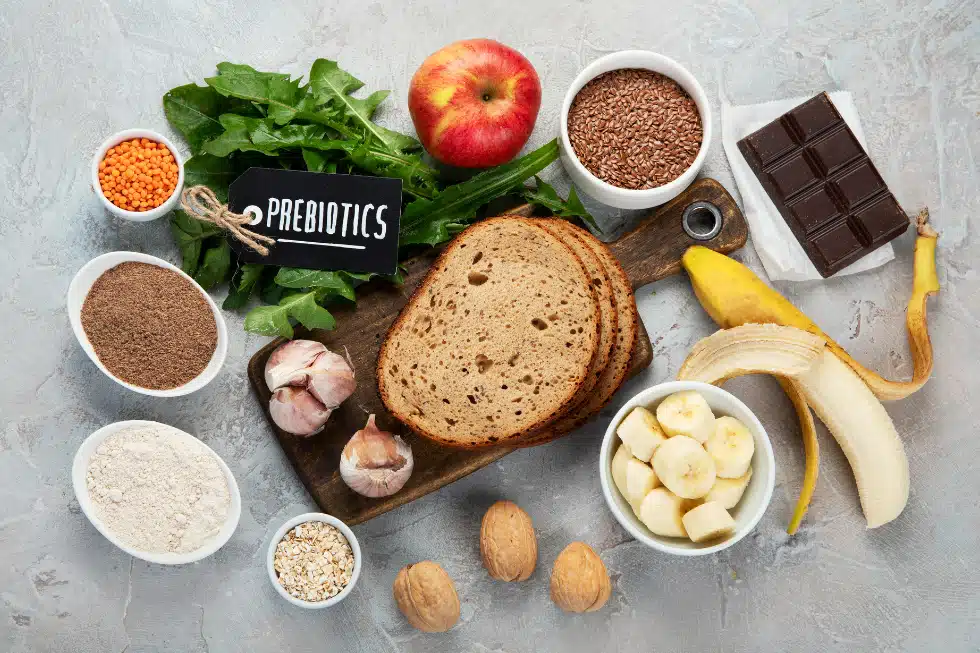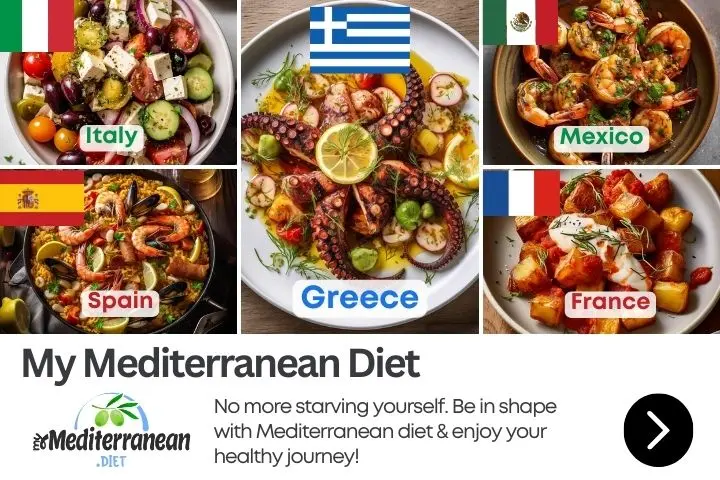The Mediterranean diet has long been celebrated for its numerous health benefits, including heart health and longevity. Rooted in the traditional eating habits of countries bordering the Mediterranean Sea, this diet emphasizes whole foods, healthy fats, and lean proteins. But beyond its well-known advantages, there’s a burgeoning interest in how the Mediterranean diet can serve as a powerful probiotic, supporting optimal gut health.
Probiotics are live microorganisms that confer health benefits to the host when consumed in adequate amounts, primarily through maintaining a healthy gut microbiota. These beneficial bacteria are crucial in digestion, nutrient absorption, and immune function. A healthy gut microbiome is essential for overall well-being, influencing everything from our mood to our risk of chronic diseases. Understanding the connection between diet and gut health is pivotal. The foods we eat can significantly impact the composition and function of our gut microbiota. The Mediterranean diet, with its rich variety of fiber-rich fruits and vegetables, whole grains, nuts, seeds, and fermented foods, provides an ideal foundation for fostering a thriving gut ecosystem. Integrating probiotic-rich foods into this diet can further enhance its benefits, creating a synergistic effect that revolutionizes our approach to health.
Core Components of the Mediterranean Diet
The Mediterranean diet is renowned for its simplicity. It focuses on whole, unprocessed foods that are delicious and nutritious. Understanding its core components is essential for appreciating how it supports gut health and well-being.
Key Ingredients: Fruits, Vegetables, Whole Grains, Nuts, and Seeds
At the heart of the Mediterranean diet are abundant fruits and vegetables, providing essential vitamins, minerals, and antioxidants. These plant-based foods are rich in dietary fiber, promoting healthy digestion and supporting beneficial gut bacteria growth. Whole grains, such as brown rice, quinoa, and whole wheat, are another staple, offering a steady energy supply and further boosting fiber intake. Nuts and seeds, including almonds, walnuts, and flaxseeds, add healthy fats and protein to the diet, enhancing its nutritional profile.
Healthy Fats: Olive Oil and Omega-3 Rich Foods
A standout feature of the Mediterranean diet is its emphasis on healthy fats, particularly from olive oil. Olive oil is a primary source of monounsaturated fats, linked to reduced inflammation and improved heart health. Omega-3 fatty acids, found in fatty fish like salmon, mackerel, and sardines, as well as in plant sources such as chia seeds and walnuts, play a crucial role in reducing inflammation and supporting brain health. These fats are also beneficial for maintaining a balanced gut microbiome.
Moderate Consumption of Dairy, Poultry, and Fish
While the Mediterranean diet is predominantly plant-based, it does include moderate amounts of animal products. Dairy, often in the form of yogurt and cheese, provides probiotics that are beneficial for gut health. Poultry and fish are preferred sources of protein over red meat, which is consumed sparingly. Fish, in particular, is favored for its high omega-3 content, contributing to the diet’s anti-inflammatory properties.
The Mediterranean diet‘s focus on fresh, seasonal, and minimally processed foods ensures a rich intake of nutrients and supports a diverse and healthy gut microbiome. By adhering to these core components, individuals can enjoy a diet that promotes longevity and well-being.
Probiotic-Rich Foods in the Mediterranean Die
One of the most compelling aspects of the Mediterranean diet is its natural inclusion of probiotic-rich foods. These foods enhance the flavor of meals and significantly contribute to gut health by supporting a diverse and balanced microbiome. Here are some key probiotic-rich foods commonly found in the Mediterranean diet :
Yogurt and Kefir Yogurt is one of the most well-known sources of probiotics, containing live cultures such as Lactobacillus and Bifidobacterium. These beneficial bacteria help maintain a healthy gut by promoting digestion and boosting the immune system. Kefir, a fermented milk drink, is another excellent source of probiotics, offering a wider variety of bacteria and yeasts than yogurt. Including these dairy products in your diet can help populate your gut with beneficial microorganisms, improving overall digestive health.

Fermented Vegetables Fermented vegetables, such as sauerkraut and kimchi, are less traditional but increasingly popular components of the Mediterranean diet. These foods are rich in probiotics due to the fermentation process, which encourages the growth of beneficial bacteria. The Mediterranean diet also includes traditional pickles, which are fermented rather than vinegar-based, ensuring they are rich in probiotics. These fermented foods enhance gut health and add a tangy, flavorful dimension to meals.
Traditional Dishes Incorporating Probiotic Ingredients Many traditional Mediterranean dishes naturally incorporate probiotic-rich ingredients. For example, tzatziki, a Greek yogurt-based sauce, combines yogurt’s probiotics with the freshness of cucumbers and garlic, creating a delicious and health-boosting addition to meals. Another example is miso soup, which, although not Mediterranean, is sometimes enjoyed for its probiotic benefits. Including these dishes ensures that probiotics are seamlessly integrated into daily meals.
Incorporating these probiotic-rich foods into the Mediterranean diet not only supports a healthy gut microbiome but also enhances the overall nutritional profile of the diet. By enjoying various foods, individuals can experience the full range of benefits associated with probiotics, from improved digestion to enhanced immune function.
Health Benefits of Combining the Mediterranean Diet with Probiotics
Combining the Mediterranean diet with probiotic-rich foods offers a powerful strategy for enhancing overall health and well-being. This synergy supports various aspects of health, particularly digestive health, immune function, and inflammation reduction.
Improved Digestion and Nutrient Absorption Probiotics are crucial in maintaining a healthy balance of gut bacteria, which is essential for efficient digestion and nutrient absorption. The Mediterranean diet’s fiber-rich fruits, vegetables, and whole grains provide prebiotics, which feed and support the growth of probiotics. This combination helps ensure the digestive system operates smoothly, reducing common issues like bloating, constipation, and diarrhea. Moreover, a healthy gut microbiome can enhance the absorption of essential nutrients, ensuring that the body gets the maximum benefit from the food consumed.
Enhanced Immune System Function A significant portion of the body’s immune system is in the gut, where beneficial bacteria help regulate immune responses. The immune system can function more effectively by maintaining a healthy gut microbiome through a diet rich in probiotics and prebiotics. The Mediterranean diet, emphasizing antioxidant-rich foods like fruits, vegetables, and healthy fats, further supports immune health. Probiotics can help reduce the severity and duration of common infections, such as colds and flu, by enhancing the body’s natural defenses.

Reduced Inflammation and Chronic Disease Risk Chronic inflammation contributes to many diseases, including heart disease, diabetes, and certain cancers. The Mediterranean diet is renowned for its anti-inflammatory properties, largely due to its high content of omega-3 fatty acids, antioxidants, and healthy fats. Probiotics can complement these benefits by promoting a healthy inflammatory response in the gut. Studies have shown that probiotics can help reduce markers of inflammation, which is crucial for preventing and managing chronic diseases. The combined effects of the Mediterranean diet and probiotics can significantly reduce the risk of developing these conditions.
By integrating probiotic-rich foods into the Mediterranean diet, individuals can experience many health benefits beyond gut health. This holistic approach to nutrition supports a healthy digestive system, enhances immune function, and reduces the risk of chronic diseases, promoting overall health and longevity.
Practical Tips for Incorporating Probiotics into the Mediterranean Diet
Incorporating probiotics into the Mediterranean diet is straightforward and enhances its health benefits. Here are some practical tips to help you seamlessly integrate probiotic-rich foods into your daily meals.
Meal Planning and Recipe Ideas Effective meal planning is critical to maintaining a balanced diet with probiotics. Add probiotic-rich foods like yogurt, kefir, and fermented vegetables to your breakfast. For example, enjoy a bowl of Greek yogurt topped with fresh berries, nuts, and a drizzle of honey. For lunch and dinner, consider adding a side of fermented vegetables like sauerkraut or pickles to your meals. Traditional Mediterranean dishes such as tzatziki can be used as a flavorful dip or sauce, adding both probiotics and taste.
The Mediterranean diet is a real culinary treasure. Centered around foods like fruits, vegetables, olive oil, and lean proteins, this diet has been linked to numerous health benefits. From reducing the risk of heart disease to supporting cognitive function, the Mediterranean diet is a flavorful and scientifically-supported path to a healthier lifestyle.
Importance of Variety and Balance Variety is essential in the Mediterranean diet and probiotic consumption. Rotate different probiotic foods to ensure you get a broad spectrum of beneficial bacteria. Besides yogurt and kefir, try incorporating various types of fermented vegetables and other probiotic-rich products like miso and tempeh. Balancing these foods with the core components of the Mediterranean diet, such as fruits, vegetables, whole grains, and healthy fats, will provide a comprehensive approach to nutrition.
Long-Term Lifestyle Benefits Integrating probiotics into the Mediterranean diet isn’t just about short-term health improvements; it’s about adopting a sustainable lifestyle change. Regularly consuming probiotic foods can help maintain a healthy gut microbiome, which supports overall well-being. This long-term approach to diet and nutrition can lead to lasting health benefits, including improved digestion, enhanced immune function, and a reduced risk of chronic diseases.
Here are a few recipe ideas to get you started:
- Greek Yogurt Breakfast Bowl: Greek yogurt with fresh fruit, nuts, seeds, and a sprinkle of oats.
- Mediterranean Salad with Fermented Vegetables: A mix of leafy greens, tomatoes, cucumbers, olives, feta cheese, and a side of sauerkraut or pickled vegetables.
- Kefir Smoothie: A blend of kefir, spinach, banana, and a handful of berries for a nutritious and probiotic-rich drink.
- Grilled Fish with Tzatziki: Serve grilled salmon or mackerel with a side of tzatziki and a fresh Greek salad.
By following these practical tips, you can easily incorporate probiotics into the Mediterranean diet, enhancing its benefits and supporting your gut health.
Conclusion
Incorporating probiotics into the Mediterranean diet is a powerful strategy for enhancing overall health and well-being. This combination not only supports a healthy gut microbiome but also offers numerous benefits, including improved digestion, enhanced immune function, and reduced inflammation. The Mediterranean diet’s emphasis on whole, unprocessed foods rich in fiber, healthy fats, and antioxidants creates an ideal environment for probiotics to thrive.
By understanding the core components of the Mediterranean diet and integrating probiotic-rich foods like yogurt, kefir, and fermented vegetables, individuals can create a synergistic effect that maximizes the diet’s health benefits. Practical tips such as meal planning, ensuring variety, and focusing on long-term lifestyle changes make it easy to incorporate these foods into daily meals. Ultimately, the combination of the Mediterranean diet and probiotics offers a holistic approach to nutrition that not only supports gut health but also promotes overall wellness. Adopting this dietary strategy can lead to lasting improvements in health, making it a valuable addition to anyone’s lifestyle.






